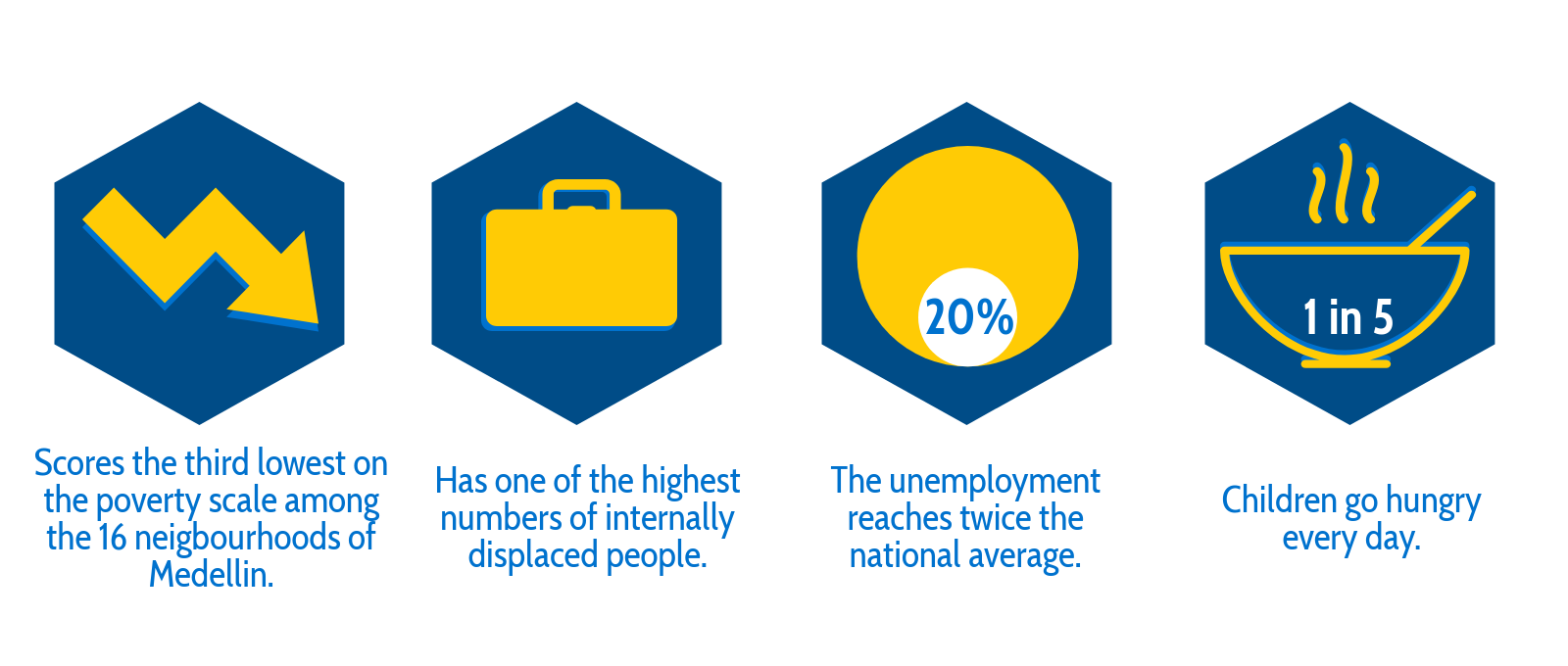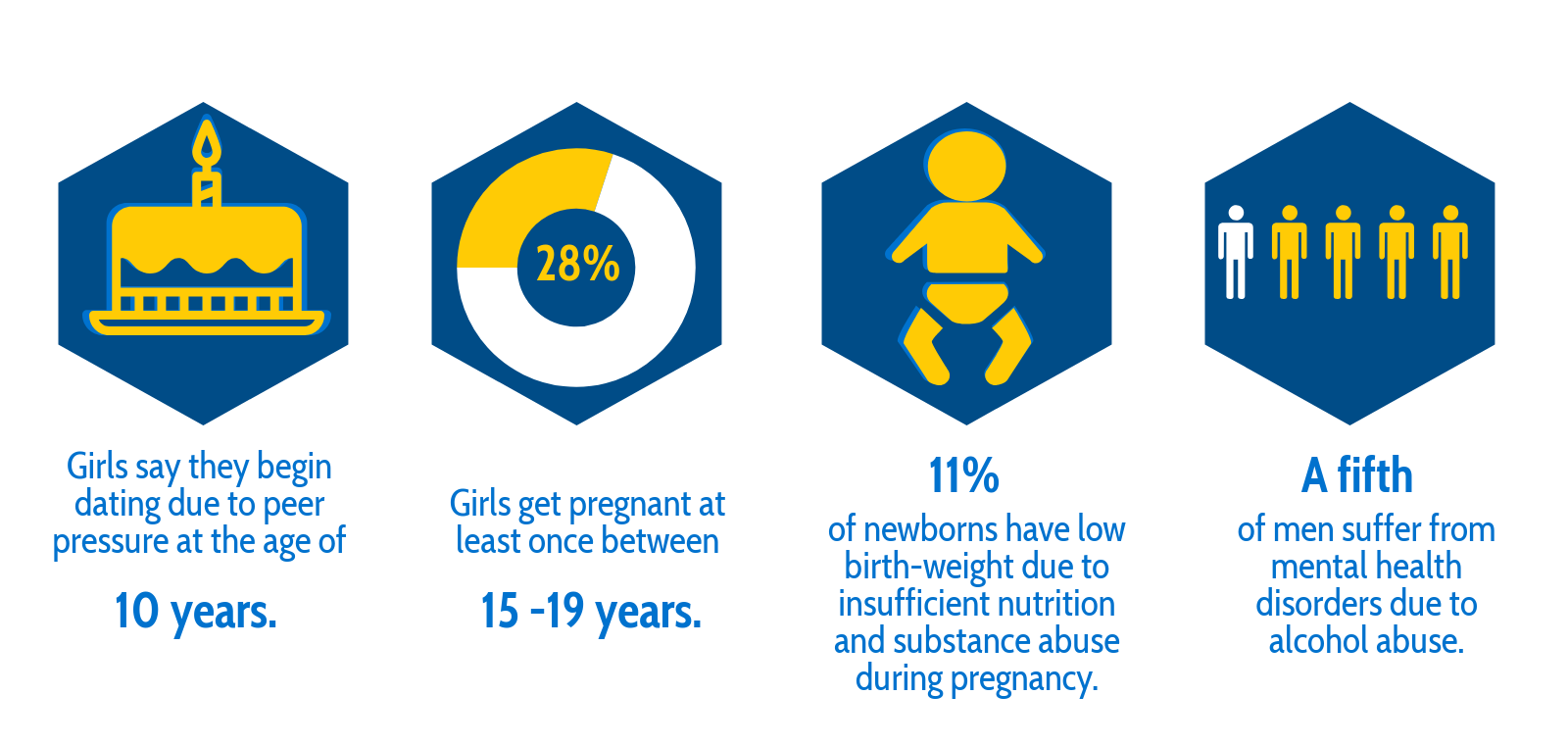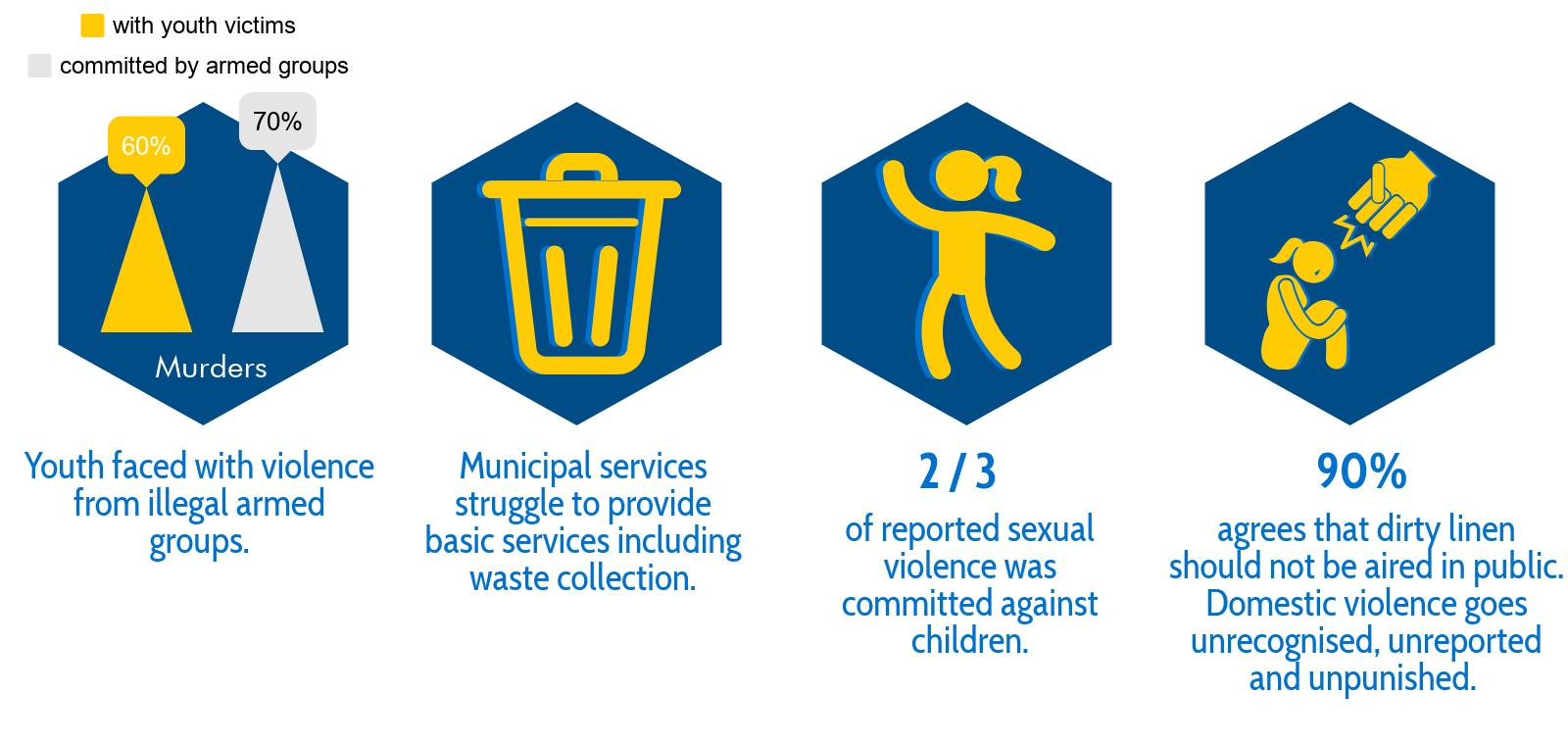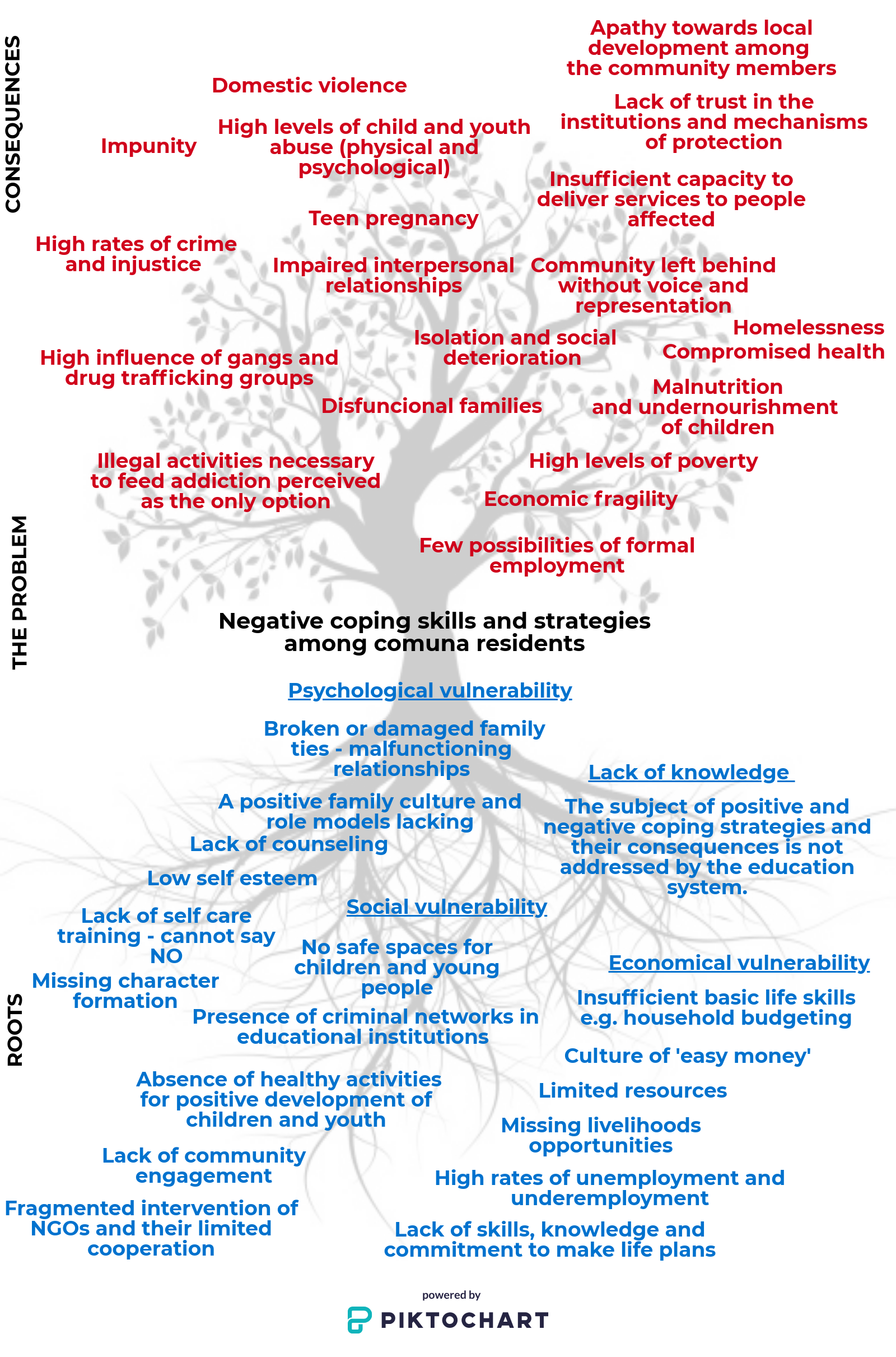
About the project
Context

The area of Manrique where the project is located, scored third lowest on the poverty scale and second lowest on the quality of life scale among the 16 districts of Medellin. This heavily populated area has one of the highest numbers of internally displaced people that had to leave their homes due to the armed conflict. In search of a new home they found themselves living in makeshift housing, with no support networks, and jobless. The municipal services have not been able to keep pace with the growing needs of the community and have been struggling to provide basic services such as waste collection .

Unemployment here is twice the national average and half the people rely on day-to-day jobs. One in five children say they go hungry every day because their family does not have enough money to buy food. This mix of poverty, combined with lack of work opportunities and support mechanisms leaves the neighbourhood more vulnerable to a whole range of social disruptions.

People living here are more likely to become victims as well perpetrators of violent actions, something to which they have become accustomed. Domestic violence carries on unidentified, unreported and perpetuated. Two thirds of all reported sexual violence is committed against children and more than half of all the victims of homicides are youth. Illegal armed groups and gangs seem to rule the area after sunset.

Needs assessment
As a part of our situation analysis we used the Problem Tree Method to capture the key problem, the roots of the problem and some of the consequences that our community is facing daily. The broken social fabric, absence of positive youth development activities and role models, presence of criminal networks, high unemployment and insufficient life skills, missing livelihood opportunities all contribute to high social, psychological and economical vulnerability of the people we work. When faced with adversary situations, which are frequent in the neighbourhood, and given the lack of social outreach (such as counselling) they frequently deploy negative or even damaging coping strategies such as substance abuse, violence perpetuation, succumbence to peer pressure. Youth present an easy target for recruitment into illegal armed groups providing them with a sense of belonging. Girls, in their effort to build self-esteem and due to peer pressure, start relationships as early as at the age of 10 - they form couples

These negative strategies, when unchallenged, turn into patterns impacting the community - lead to increase in domestic violence, teenage pregnancy, malnutrition among children, dysfunctional families and also compromised health etc. Drug and alcohol addiction is high, leaving a fifth of all men with mental health disorders due to alcohol abuse. Nearly a third of girls experience pregnancy at least once between 15-19 years of age. Hence it is of no surprise that less than a third of children in the district live with their parents. Manrique has the largest proportion of infants with low birthweight within the metropolitan area , and the second highest rate of infant mortality pointing to insufficient nutrition during pregnancy and substance abuse among other factors. Many families fail to provide the children and youth with healthy role models, a stable environment and basic life skills.
The neighbourhood of MarÍa Cano-Carambolas is experiencing the perpetuating cycle of poverty, exclusion and violence. This is why we educate, accompany, mentor and provide practical assistance to the residents of this ‘poorest of the poor’ neighbourhood.
What we're doing now
We run a number of projects within our three programme areas:
- Our family support programme provides household management and budgeting workshops, parenting skills seminars, new baby new mother courses and family conflict resolution workshops.
- Our community assistance programme delivers community health screening, ongoing care and support for chronically ill, food and clothes bank, feeding programme for those at risk of undernutrition and Christmas box campaign in the most disadvantaged communities.
- Our outreach programme offers recreational activities for senior citizens, safe spaces and children and youth activities, backyard gardening classes as well as skills and crafts training in order to improve the livelihoods of our community.
Extending our reach
Currently, 450 – 500 women benefit from our services at the Center every week. Despite trying to accommodate as many beneficiaries as possible, we have not been able to place 230 women which are presently on our waiting list as a result of the limited space available to us. The increased running cost (trainers, volunteers, maintenance) resulting from this expansion have already been resourced.
Despite the high attendance of our workshops, we have found that the outcomes for many women have improved only after introducing 1-to-1 counselling. We have been able to provide three sessions a week; however, at times, counselling services requiring confidentiality are carried out in suboptimal conditions (e.g. in the main hall or outdoors on the patio) or need to be cancelled. The lack of suitable infrastructure therefore jeopardises the quality of our services and makes the demanded expansion unfeasible.
In order to increase our impact among the community, we plan to start running programmes for fathers (20 in the first year) - helping them to prepare for the life of work, providing space where they can discuss family concerns, and addressing the issues of addictions. We believe that by adding this target group to our existing activities which reach 150 children and 450 women, we can create a truly sustainable change in families and within our community.
Our plan
We plan to achieve the three following objectives through this project:
- To extend our reach - reach new beneficiaries with our existing services (workshops)
- To improve our reach - have suitable infrastructure, ensuring the quality of our counselling services
- To reach the unreached - introduce new services aimed at fathers.
We plan to achieve this by adding on a new facility, comprising 3 rooms, and converting the existing patio into a weather-proof multiuse space. In order to reduce the overall cost, we propose to house all the units in one structure and not include water systems which are available in the main building. The new spaces will adhere to the standards in prevention of sexual abuse. The new rooms will provide a flexible space for up to 20 people plus trainer (in the case of workshop sessions) or for 1-to-1 confidential space (in the case of counselling sessions). For more detail, please refer to the architectural drawings. The new space will give us the ability to grow our service portfolio and introduce new services in the future.
The project will directly benefit 850 people in the community, including 250 new beneficiaries, and allow us to reach an additional 3100 beneficiaries indirectly. This means that 54% of all inhabitants of the barrio will benefit from the project.